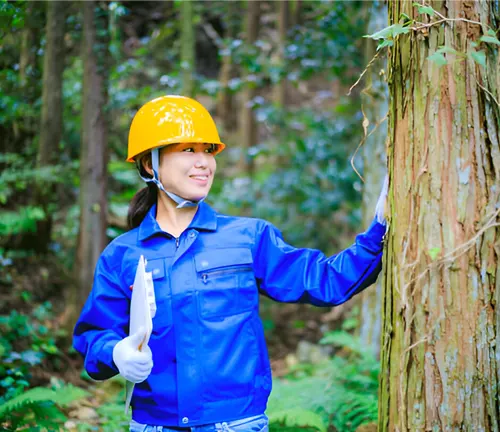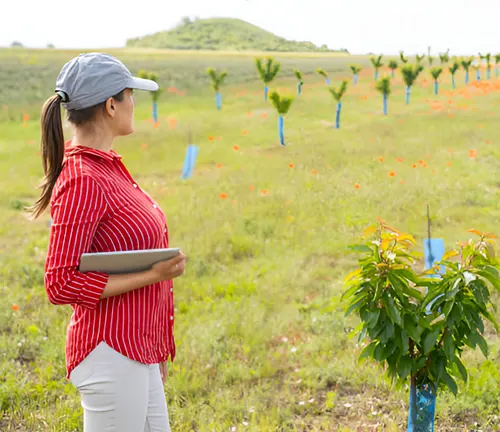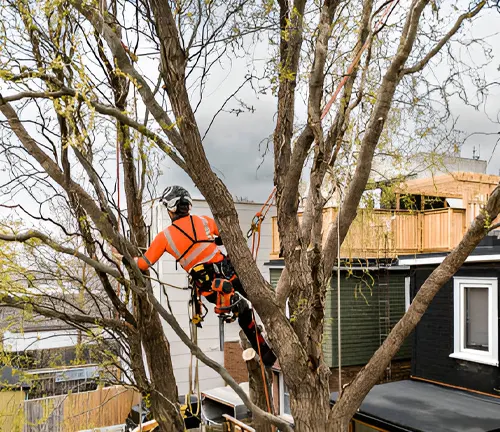Top-Rated Forestry Degree Programs: Courses and Career Paths
- August 16, 2024
- 0 comment
Forestry education is crucial for those aiming to effectively manage and conserve forest resources. Choosing a top-rated forestry degree program can have a profound impact on your career path, providing you with the essential skills, knowledge, and opportunities needed to thrive in this important field.

This overview examines the characteristics of exceptional forestry degree programs, highlights some of the best available options, details key courses, and explores various career paths for forestry graduates.
What Makes a Forestry Degree Program Top-Rated?
Top-rated forestry degree programs stand out due to their comprehensive curriculum, expert faculty, and strong industry connections. These factors ensure that students receive a well-rounded education, hands-on experience, and ample career opportunities.
Accreditation and Curriculum
Accreditation by bodies such as the Society of American Foresters (SAF) is a hallmark of a high-quality program. It ensures the curriculum meets industry standards and provides a solid educational foundation. These forestry degree programs typically cover a range of subjects from foundational sciences to specialized forestry topics, ensuring a well-rounded education.

These programs typically cover a range of subjects from foundational sciences to specialized forestry topics, ensuring a well-rounded education
Faculty Expertise and Research Opportunities
Programs with experienced faculty members who are actively involved in research provide students with insights into the latest advancements in forestry. These institutions often offer research opportunities, allowing students to engage in cutting-edge projects and gain valuable hands-on experience
Industry Connections and Internships
Strong connections with industry and government agencies offer students valuable internships and job placement opportunities post-graduation. These partnerships are crucial for practical training and real-world experience, which are integral to a comprehensive forestry education
Top-Rated Forestry Degree Programs
1. University of California, Berkeley
Specializations: Professional Forestry, Natural Sciences
The Professional Forestry specialization is SAF-accredited, preparing graduates for licensing as professional foresters in California. The program includes the Forestry Field Camp and the Moorea Field Program, offering hands-on experience in diverse ecosystems.
The curriculum covers a wide range of topics, including wildlife biology, fire science, ecosystem restoration, and remote sensing
2. Virginia Tech
Specializations: Professional Forestry, Natural Sciences
Virginia Tech’s forestry program offers three distinct tracks, each catering to different aspects of forest management. The Forest Resource Management track provides a solid foundation in biological and social sciences, while the Forest Operations and Business track focuses on commercial timber sale management.

The Urban Forestry track emphasizes forest resource management in urban settings, with coursework in horticulture, landscape architecture, and planning. Students have access to the Center for Geospatial Information Technology and other interdisciplinary resources
3. Michigan Technological University
Specializations: General Forestry, Forest Sciences, and Biology
This program is known for its high-quality faculty and comprehensive curriculum that balances theoretical knowledge with practical fieldwork. Students engage in extensive lab and field studies, preparing them for various roles in forestry and natural resource management.
The program’s strong emphasis on hands-on experience ensures graduates are well-prepared for the workforce
Key Courses in Forestry Degree Programs
Forestry degree programs typically include a mix of foundational and specialized courses, along with practical training:
Foundational Courses
These courses provide the scientific basis for forestry studies. Subjects typically include Biology, Chemistry, and Geology. These courses help students understand the biological and chemical processes that underpin forest ecosystems and natural resource management.
Specialized Courses
As students progress, they take more specialized courses such as Silviculture, Forest Ecology, and Forest Management. These courses delve deeper into the principles and practices of managing forests for timber production, conservation, and recreation.

Additional subjects may include Wildlife Biology, Hydrology, and Geographic Information Systems (GIS), which are crucial for modern forest management.
Practical Training
Practical training is a critical component of forestry education. Programs often include field studies, lab work, and internships, providing students with hands-on experience in real-world settings. These experiences are invaluable for applying theoretical knowledge and developing practical skills necessary for a successful career in forestry
Career Paths with a Forestry Degree
A forestry degree opens up a wide range of career paths, each with its unique opportunities and challenges:
Traditional Roles
These include positions such as Forester, Silviculturist, and Forest Ranger. These professionals are responsible for managing forests, ensuring sustainable practices, and protecting forest resources from threats such as pests, diseases, and wildfires.

They work in various settings, including national parks, private lands, and conservation

Emerging Roles
With the increasing importance of urban green spaces and environmental sustainability, new roles are emerging. Urban Foresters manage trees and green spaces in cities, contributing to urban planning and improving the quality of life for residents.
Environmental Consultants work with businesses and governments to develop sustainable practices and ensure compliance with environmental regulations. GIS Specialists use geographic information systems to analyze and manage forest data, supporting decision-making and planning
Government Positions
Many foresters work for government agencies such as the U.S. Forest Service or state forestry departments. These roles often involve managing public lands, conducting research, and developing policies to promote sustainable forest management.
Positions may include Forest and Conservation Technicians, Conservation Scientists, and Forestry and Conservation Science Professors
Private Sector Opportunities
The private sector offers numerous opportunities for forestry graduates. Timber companies employ foresters to manage tree plantations and ensure sustainable timber production.
Environmental NGOs hire forestry professionals to advocate for conservation and implement sustainability projects. Consulting firms provide expertise in areas such as land management, environmental impact assessments, and resource conservation
Tips for Choosing the Right Forestry Degree Program
Selecting the right forestry degree programs requires considering several key factors. Firstly, ensure the program is accredited by reputable bodies such as the Society of American Foresters (SAF). Accreditation guarantees a comprehensive curriculum and access to practical training, taught by experienced faculty engaged in active research.
Additionally, investigate financial aid and scholarship options to help manage educational costs. Many universities offer specific scholarships for forestry students, and organizations like the SAF and the Sustainable Forestry Initiative provide financial support. These factors will help you choose a program that aligns with your goals and supports your financial needs.
Conclusion
Choosing a top-rated forestry degree programs is a crucial step towards a successful career in forestry. By considering factors such as accreditation, curriculum quality, faculty expertise, and available financial aid, you can make an informed decision that aligns with your career goals.
Pursuing a degree from a distinguished program not only provides a solid educational foundation but also opens doors to diverse and rewarding career opportunities in the forestry sector. As environmental concerns continue to grow, the demand for skilled forestry professionals will only increase, making this an opportune time to embark on a career in this vital field.
Frequently Asked Questions (FAQ’s)
- What are the main components of a top-rated forestry degree program?
A top-rated forestry degree programs typically includes accreditation by reputable bodies like the Society of American Foresters (SAF), a comprehensive curriculum covering foundational and specialized courses, experienced faculty involved in active research, and strong industry connections offering internships and job placement opportunities. - What are the benefits of attending an accredited forestry degree program?
Attending an accredited forestry degree programs ensures that the education meets industry standards, which can enhance employability and credibility in the job market. Accreditation signifies rigorous evaluation and adherence to high educational standards. - What foundational courses are typically included in a forestry degree program?
Foundational courses often include Biology, Chemistry, and Geology. These courses provide the essential scientific background necessary for understanding forest ecosystems and natural resource management. - What specialized courses can I expect in a forestry degree program?
Specialized courses may include Silviculture, Forest Ecology, and Forest Management. Additional subjects might cover Wildlife Biology, Hydrology, and Geographic Information Systems (GIS). - What career paths are available with a forestry degree?
Graduates of forestry degree programs can pursue careers as Foresters, Silviculturists, Forest Rangers, Urban Foresters, Environmental Consultants, and GIS Specialists. Opportunities exist in both government and private sectors. - How important are internships in forestry degree programs?
Internships in forestry degree programs are crucial as they provide practical, hands-on experience that complements academic learning. They also enhance employability by allowing students to apply theoretical knowledge in real-world settings. - What should I consider when choosing a forestry degree program?
Consider the program’s accreditation, curriculum quality, faculty expertise, and available practical training opportunities. Financial aid options and scholarship availability are also important factors. - Are there scholarships available for forestry degree programs?
Yes, many universities offer scholarships specifically for students in forestry degree programs. Organizations like the Society of American Foresters and the Sustainable Forestry Initiative also provide financial support for forestry students. - What is the role of faculty expertise in forestry education?
Faculty expertise is vital as experienced and research-active faculty members bring current knowledge and practices into the classroom. They can also provide valuable mentorship and research opportunities for students. - How can I enhance my employability with a forestry degree?
Enhance employability by choosing an accredited program, participating in internships, and gaining hands-on experience through fieldwork. Networking with professionals and staying updated on industry trends also help.

Jordan Blake
Forestry AuthorJordan Blake is a forestry expert with over 15 years of experience in arboriculture and community education. Passionate about sustainable forest management, Jordan regularly writes for Forestry.com and Tree Care Magazine. Holding certifications in tree health assessments and urban forestry management, Jordan conducts workshops to educate the public on sustainable practices. Jordan has a degree in Environmental Science and enjoys hiking and photography in their free time.





Leave your comment